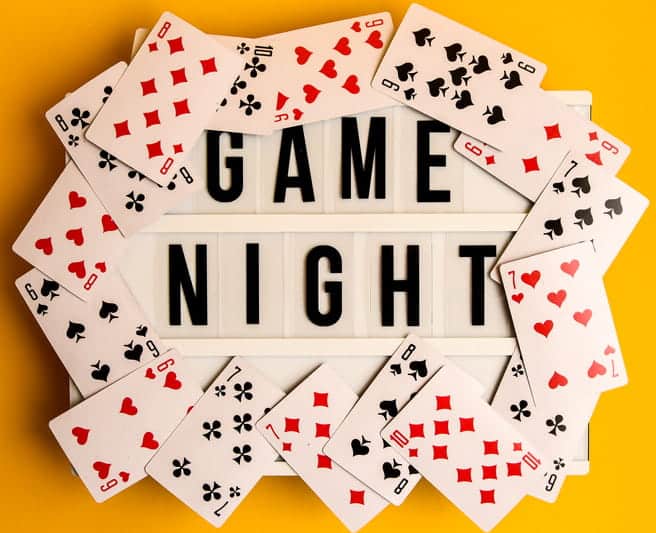
While getting older can impact your ability to participate in some types of enjoyable activities, board games are an activity that anybody can enjoy. According to the Centers for Disease Control and Prevention (CDC), while roughly 6.2 million Americans 65 or older have Alzheimer’s disease (the most common form of dementia), it has been estimated that approximately 40% of dementia cases can be slowed or stopped (in some cases). Dementia can be slowed or stopped with the following healthy behaviors:
- Not smoking
- Managing blood sugar levels
- Maintaining healthy blood pressure
- Getting enough exercise
- Getting enough sleep
- Staying mentally engaged
While the first five of these prevention tools are basically the same for preventing any type of disease, illness, or other ailments – keeping the mind mentally engaged can be a challenge (especially if you’re already struggling with an illness or disability). Though reading a good book, learning a new language, or engaging in a stimulating conversation with a friend can all have a positive effect on the brain, it can be difficult to make time for these activities every day. Luckily, certain games can keep your brain engaged as well. Keep reading to learn more about board games for seniors.
What are the benefits of playing board games?
Multiple studies have shown the potential benefits of playing board games. Here is what the science says about the benefits of playing board games:
- A 2019 study published by the National Library of Medicine (NIH) found that people who play board games have roughly a 15% lower chance of developing dementia and are less likely to develop depression.
- Another study published in 2021 by the American Academy of Neurology showed that those who participated in stimulating cognitive activities such as board games staved off dementia associated with Alzheimer’s disease for up to five years.
- Playing games can help motivate you to stay social, which also has mental health and cognitive benefits. According to Harvard Health Publishing, social interaction is not only good for increasing your attention span and improving your memory, but it has been tied to as much as a 40% decrease in dementia risk.
Are other types of games effective?
According to the Mayo Clinic, the type of game or puzzle isn’t that important. What is important is that the activity keeps your mind interested and challenged. Games that may have a positive effect on cognitive abilities include:
Memory games for seniors
According to the Mayo Clinic, games such as trivia games, puzzle games, crossword puzzles, scrabble, etc., can have a positive effect on memory. While everyone will experience some degree of forgetfulness with aging, memory board games for seniors can delay this issue by essentially keeping your memory “exercising.”
Strategy board games for seniors
These may actually be the ideal types of board games for seniors with dementia. According to a 2017 study published by PubMed, games that use strategy may be beneficial to older adults who are already struggling with memory-related disorders.
Computer games for seniors
According to the Mayo Clinic studies, while more research is needed to be conclusive, there is evidence that computer games (specifically, the “brain training” types of games) can be beneficial for cognitive abilities and mood.
Video games for seniors
According to the National Institute on Aging (NIH), studies suggest that video games may assist older adults with bettering their cognitive abilities (specifically with memory and recognition skills). It’s worth noting that the study only showed results in those who played games that included ornate “three-dimensional environments,” such as those in some of the Super Mario™ games. This could possibly hint at the benefits of being exposed to stimulating environments virtually for those who may be homebound due to illness or disability.
Where can I find games that help with cognitive function?

While many may already have a closet of board games ready to get their mind engaged, for those lacking, there are all kinds of games you can order online. Or, if you’re feeling social and/or frugal, you can check out your local senior center to see if they have community games you can participate in. There are also a lot of online options.
Free brain games for seniors
While purchasing video games and computer games may be out of your price range, you can find a bunch of free games online to stimulate the brain. You can also find free AARP games or try MentalUp.
Keeping Your Mind Healthy and Active
Getting older can mean a certain degree of mental decline, but it doesn’t always have to. By maintaining your health, keeping a healthy social life, and making time to enjoy some games that keep your mind sharp (ideally on a daily basis), you can remain quick-witted into old age.
If you or a loved one is experiencing memory issues, check out the memory care services available at Haven Health.
Citations:
10 Free Brain Games & Memory Exercises for Seniors. (2023).
Billodeau, K. (2021). 3 ways to build brain-boosting social connections.
Clemenson, G., et. al. (2020). Enriching hippocampal memory function in older adults through video games.
Nakao, M. (2019). Special series on “effects of board games on health education and promotion” board games as a promising tool for health promotion: a review of recent literature.
Petersen, R. (2019). Memory loss. (2019).
Ray, N., et al. (2017). Evaluating the relationship between white matter integrity, cognition, and varieties of video game learning.
Shandera-Ochsner, A. (2018). Can Computer Games Help My Memory?
The Truth About Aging and Dementia. (2021).
Wilson, R., et al. (2021). Cognitive Activity and Onset Age of Incident Alzheimer Disease Dementia.